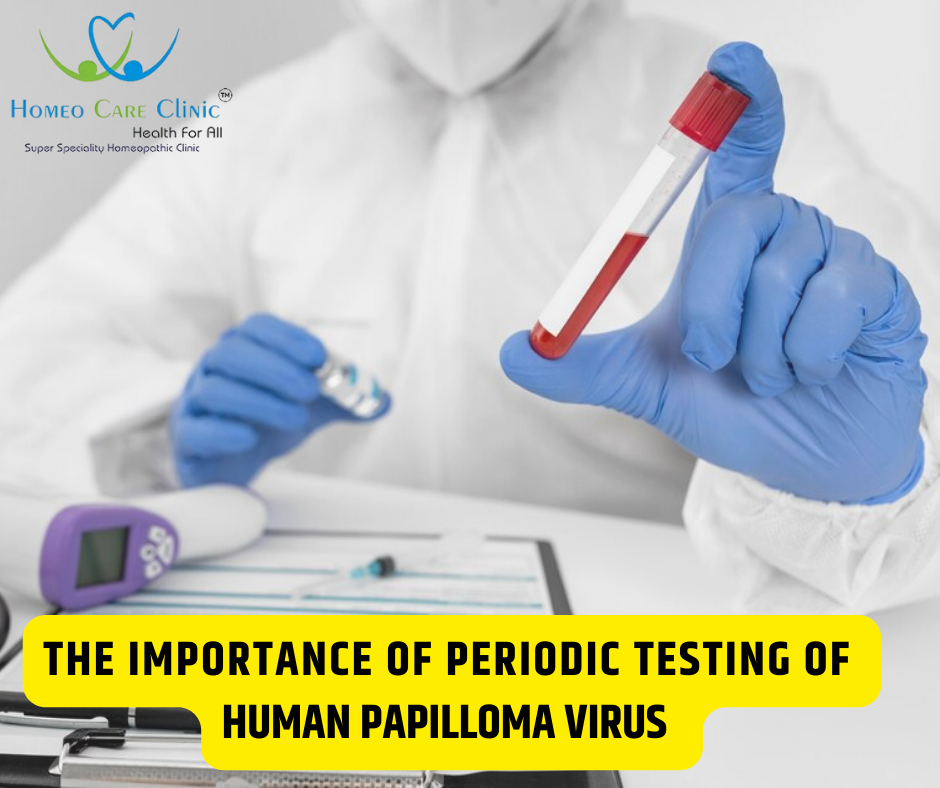INTRODUCTION:
The importance of periodic testing for human papillomavirus (HPV) is crucial for several reasons. Firstly, HPV is a common sexually transmitted infection that can infect both men and women. Persistent HPV infection, especially with high-risk types, is a leading cause of cervical cancer in women.
Regular HPV testing helps in early detection of the virus, allowing for timely intervention and preventive measures. It aids in identifying individuals at a higher risk of developing cervical cancer, enabling healthcare professionals to monitor and manage their health more effectively.
Moreover, HPV testing is essential for screening and managing other HPV-related cancers, such as anal, penile, vaginal, and oropharyngeal cancers. Detecting HPV early can lead to early treatment, reducing the risk of cancer progression and improving overall health outcomes.
Routine testing is particularly vital for women as part of cervical cancer screening programs. It complements Pap smears by providing additional information on the presence of high-risk HPV types, helping healthcare providers make more informed decisions about further diagnostic and treatment options.
In summary, periodic HPV testing is crucial for early detection of the virus, prevention of HPV-related cancers, and the overall well-being of individuals, especially in the context of cervical cancer screening.
CAUSES:
- Sexual Contact: HPV is primarily transmitted through direct skin-to-skin contact, often during sexual activity. Any form of genital, anal, or oral contact can lead to transmission.
- Multiple Partners: Having multiple sexual partners increases the risk of exposure to different HPV types, increasing the likelihood of infection.
- Weakened Immune System: Individuals with weakened immune systems, due to conditions like HIV or immunosuppressive medications, may be more susceptible to persistent HPV infections.
SIGNS AND SYMPTOMS:
- Asymptomatic Infections: Many HPV infections are asymptomatic and resolve on their own without causing any noticeable signs or symptoms.
- Genital Warts: Some HPV types can cause visible warts on the genital and anal areas. These warts may appear as small, raised, or cauliflower-like growths.
- Respiratory Papillomatosis: In rare cases, HPV can cause warts in the respiratory tract, leading to respiratory papillomatosis, which can affect breathing and voice quality.
- Cervical Changes: In women, persistent high-risk HPV infections can lead to changes in the cervix, potentially progressing to cervical cancer over time.
- Other HPV-Related Cancers: HPV is associated with cancers of the anus, penis, vagina, vulva, and oropharynx. Signs and symptoms depend on the specific cancer but may include pain, changes in bowel or urinary habits, or visible lesions.
Vaccination, regular screenings, and safe sexual practices are essential for prevention and early detection. If you suspect an HPV infection or experience unusual symptoms, consulting a healthcare professional is advisable for proper diagnosis and guidance.
HOMOEOPATHIC APPROACH FOR HUMAN PAPILLOMAVIRUS:
Homeopathy is an alternative system of medicine based on the principle of “like cures like,” where highly diluted substances are used to stimulate the body’s healing response. Homeopathy can offer a holistic approach to managing chronic viral diseases like the Human Papilloma Virus and aims to address the underlying immune dysfunction. The homeopathic treatment effectively works on an individual’s specific symptoms, family hereditary history, and overall constitution. Majorly, it considers the emotional and psychological aspects of the person. It not only works on diseased conditions but aims to cure patients as a whole.
HOMEOPATHIC MEDICINES FOR HUMAN PAPILLOMAVIRUS:
1. Nitric Acid: It is often recommended as a potent remedy for HPV infection characterized by painful warts. Nitric Acid is specifically chosen when the pain associated with the warts is described as shooting, stitching, pulsating, or generally intense. Furthermore, if the warts are notably sensitive to touch and accompanied by itching, Nitric Acid is commonly suggested as a suitable homeopathic option for managing HPV infection.
2. Thuja: It is used for cauliflower-like warts on the female genitals. Bleeding warts in women also suggest that thuja is the best treatment for HPV. Thuja can also be of great help if the human papillomavirus causes warts around the anus and genitals.
3. Calcarea Carb: It is valuable for treating warts that show up on the neck, face, and hands. This homeopathic medicine treats warts that are circular, difficult, and single-appearing. It is especially suited to fair, fat, and obese women having warts.
4. Causticum: This cure treats ancient, huge warts that as a rule show up on the confront (nose), beneath the fingernails, or indeed on the fingertips. Such warts are difficult, difficult and drain effortlessly.
5. Dulcamara: These warts are showing up on the confront and hands. These warts are brown to blackish in color and get more awful in cold or clammy climates.
CONCLUSION :
It’s important to reiterate that homeopathic remedies should be specified by a good homeopath after a thorough evaluation of the existent’s symptoms, medical history, and overall health. Dr Vaseem Choudhary’s “ Homoeo Care Clinic” is known for furnishing treatment for chronic conditions like human papillomavirus (HPV) through a holistic approach.







